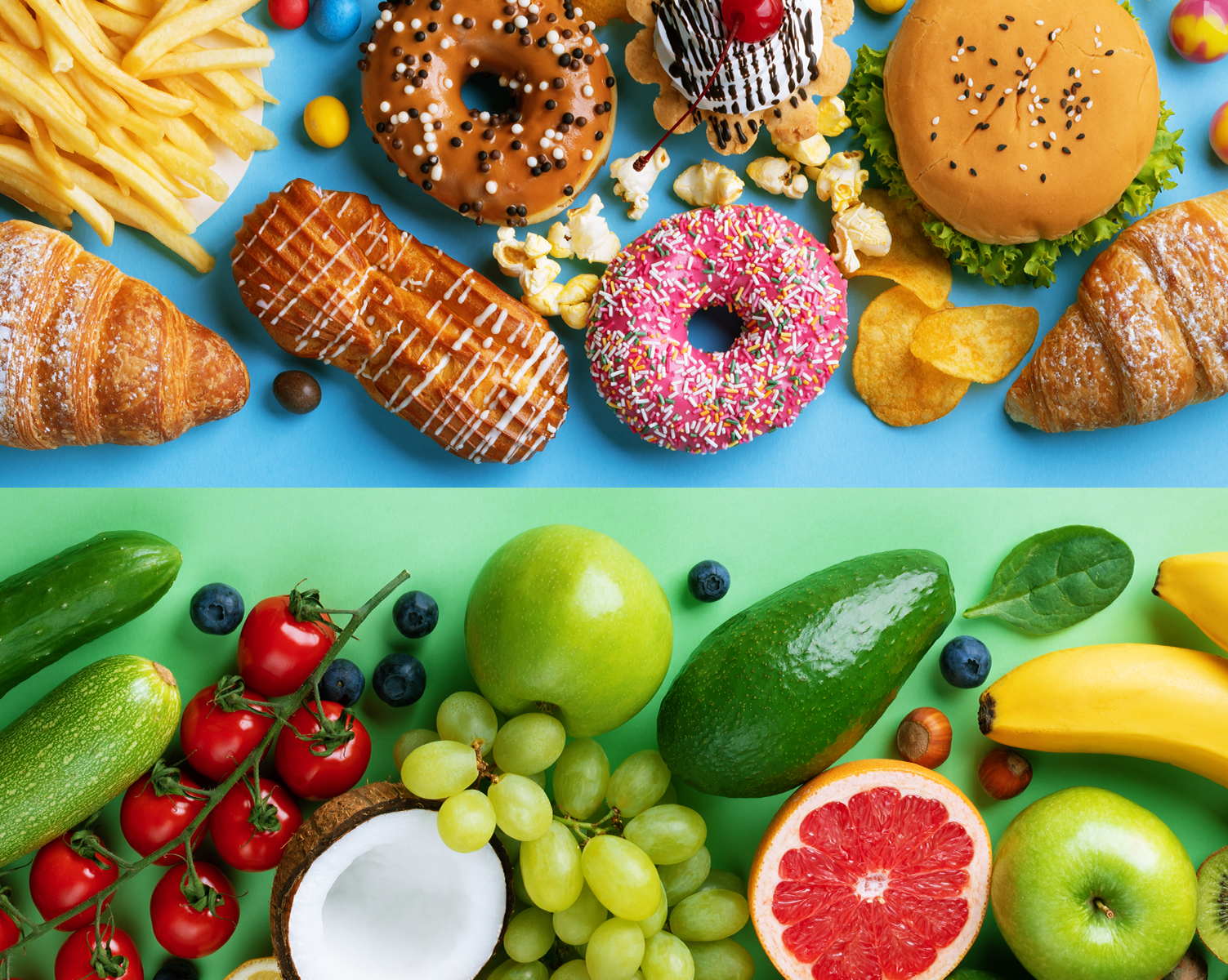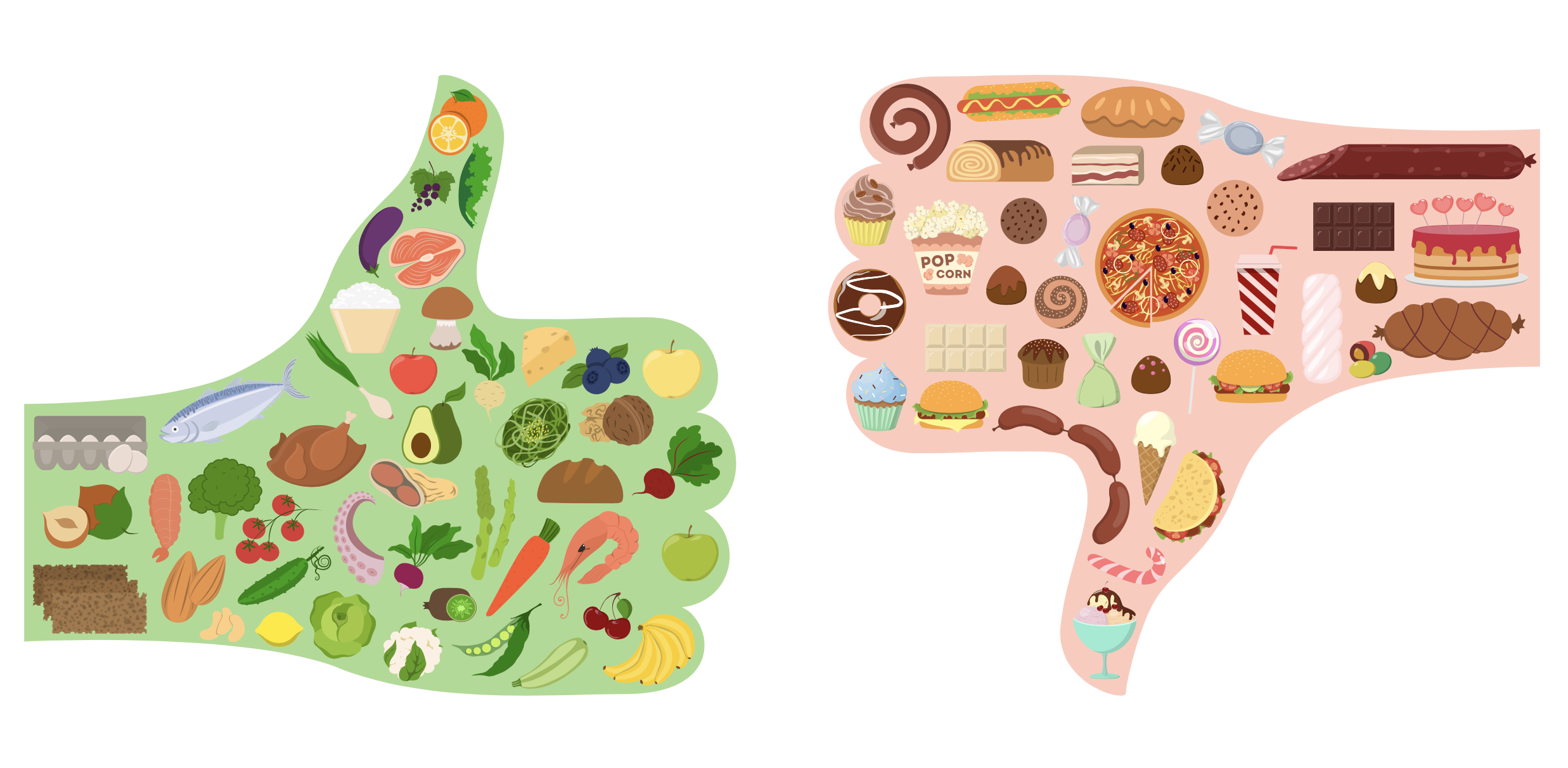whole foods vs processed foods
The phrase “you are what you eat” was coined in the early 1800s by a French lawyer, but didn’t become popular in the United States until the 1920s after a doctor strongly believed that food influenced health. The philosophy re-emerged in the 1960s during the organic-food movement as more and more evidence supported the idea.
Today, many people live by this philosophy for the simple, or not so simple, choices we make every day about what to eat and put in our bodies.
🍽️ What makes whole foods “whole” and processed foods “processed”?
Whole foods vs. processed foods, what’s the difference? Whole foods are generally characterized as foods that have not been processed, refined or had ingredients added to them. Whole foods include fruits, vegetables, legumes, nuts, seeds, whole grains, meat, fish and eggs. Think of food that you look at and recognize as something that exists in nature, like broccoli, a fish or a potato. In addition to a whole-foods diet, some people may eat a whole-foods, plant based diet, which simply excludes animal foods, like meat, fish, dairy and eggs.
Processed foods are foods that have undergone substantial modification, transforming them away from their original form. This process strips them of nutrients, bleaches them, combines chemicals, and other unnatural additives. As a result, the look, feel, and the taste is different from their natural form.
🔥 Health Impacts – Nutrient Dense vs. Empty Calories
There are a few things that make processed foods harmful. First, the removal of nutritional components. This practice leaves food nutritionally deficient and high in calories. That’s not the purpose of eating. Food is not only for energy, it also has medicinal properties that are key to fight against illness and achieve optimal wellness.
The removal of nutrients not only can change the pathway of digestion. It can also cause overconsumption of calories, often causing you to gain weight. For example, the removal of bran and germ in white flour also removes fiber. Without fiber to aid in digestion, you feel hungrier faster, trigger higher fat storage, and can potentially become addicted. Wait! What?
The vitamins and minerals abundant in whole foods are the necessary raw materials that our bodies depend on daily. We also get the benefits of fiber and phytonutrients, which protect against chronic diseases like cancer and cardiovascular disease. Whole foods are considered “nutrient dense,” meaning they contain a variety of nutrients, while foods that are heavily processed are considered to contain “empty calories.”
Eating a diet mainly composed of heavily processed foods, or empty calories, supplies us with excessive calories, sugar, fat and sodium, and tends to be low in fiber and phytonutrients. These can negatively impact our bodies and play a role in the development of obesity, diabetes, hypertension, hyperlipidemia and certain types of cancer.
🍔 Should You Avoid Processed Foods?
Completely avoiding processed foods for health reasons isn’t typically necessary – incorporating some minimally processed foods can actually help individuals eat healthier overall.
Some people also think about the environmental impact when choosing food – what is good for us tends to be easier on our planet. Eating more whole and less-processed foods can help reduce your carbon footprint and conserve natural resources. The most environmentally friendly choice would be to adopt a whole-foods, plant-based diet, but even small changes can have a big impact.
🥦 Look at the ingredients
The best way to get an idea of the amount of processing a food has undergone is by looking at the ingredient list. A list with one or two ingredients may indicate a less-processed food, and a longer ingredient list typically means more processing.
Incorporating more whole foods and micronutrients into one’s diet doesn’t have to be extreme or restrictive. Just start by adding more fruits and vegetables to your daily intake and aim to get 6-9 servings a day. This may seem like a lot at first but when you incorporate them into every meal it will become a healthy habit. It can help to include others in the process, holding you and them accountable, while having fun along the way.


